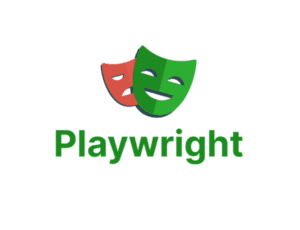The LendTech Collective
Insights to stay ahead!
Bimonthly Newsletter | Mar 2022 | Issue 117
Featuring
- Lending Trends 2022 – how can Lenders adapt to become successful?
- How does Open Banking help Lenders in simplifying the processes?
- In the News
- Major Events
Focus On
Lending Trends 2022 – how can Lenders adapt to become successful?
As we enter this next phase of the recovery, the future is unfolding. 2021 has taught all of us a lot about handling the unexpected. Although FinTechs have been upending traditional banking models for years, the pandemic presented opportunities to enterprises to reinvent, adapt and emerge stronger. To ensure the continuation of the economy, lenders were responsive by creating new business models, targeting new customer segments, and future-proofing new strategies.
As we stepped into 2022, let’s find out the Lending trends for this year and how can lenders adapt to them.
Trends that will shape lending in 2022
Customer Affordability as a Service: As economic activity rebounds, people are facing elevated levels of inflation with potential increases in interest rates forecast in early 2022. To meet the increasing regulatory requirements and to ensure good customer outcomes, firms need to work towards more customer-centric affordability assessments. The introduction of consistent modelling for income and outgoings across all areas of the business will give lenders increased control, consistency, and agility to react to regulatory changes.
Open Banking battle heats up: From frictionless payments to providing more secure and simple ways to pay – open banking will be a headline trend in 2022. The growth of Open banking represents both a challenge and an opportunity to the traditional incumbents in the payments and lending markets, who will need to have and execute a clearly defined Open Banking strategy.
‘Buy-now pay- later’, is trending : The global pandemic and the growing need for splitting the cost of purchases over a period has led to widespread adoption of BNPL products. According to the Q4 2021 BNPL Survey, BNPL payment in the United States is expected to grow by 66.5% on annual basis to reach US$ 82086.8 million by the end of 2022.
Demand for alternative credit scoring: With the novel coronavirus pandemic disrupting economies around the world, the importance of credit as a tool for rebuilding has come into sharp relief — as has the need for alternative scoring for borrowers. Traditional systems restrict borrowers with no credit history, alternative credit scoring software solutions open an opportunity for such applicants by analyzing and giving a gauge of the overall financial health of applicants with no credit score.
Automation will expand among mainstream lenders: Automation will continue its rapid expansion in 2022 from its current position. According to predictions by Gartner, the worldwide market for technology that enables hyper-automation is set to reach $596.6 billion in 2022, up from $481.6 billion in 2020.
Final thoughts
Thanks to the pandemic and technological advances, major shifts are coming for finance. Customers’ financial needs are constantly evolving. It’s time for financial leaders to think beyond traditional bottom-line metrics and develop strategies that serve both business and societal needs by putting purpose and trust at the top of the agenda. There’s never been a better time to reach higher.
Keep Reading

How does Open Banking help lenders in simplifying the processes?
The pandemic has halted the proliferation of traditional paper-driven, face-to-face loans and forced commercial lenders to move toward digitalization. Not only this – fintech companies addressing the same issues are on the rise and are giving traditional consumer lenders a run for their money. Manual processes associated with reviewing, servicing, tracking, and maintaining commercial loan transactions have become automated. Technological advancements have allowed for more reliable and simpler application processes.
Here appetite for “Open Banking”, pace picking up worldwide. Consumers allow third-party providers to use the financial information held by their bank to make decisions on which businesses are eligible for loans.
Why does business lending use Open Banking?
Lenders require account data to make decisions on which businesses are eligible for loans. Open Banking—driven by regulatory, technology, and competitive dynamics—calls for banks to use APIs to make certain customer data available to non-bank third parties. The innovation is both evolving the industry toward hyper-relevant, platform-based distribution and giving banks a rich opportunity to expand their ecosystems and extend their reach.
Cloud-based APIs are at the heart of fast and efficient digital transformation strategies. Simple plug-and-play functionality makes it possible for financial institutions to adopt an integrated environment of applications, all designed to automate critical workflows to return faster credit decisions. The method of aggregating data across multiple accounts into one, easy-to-use platform, offering customers a 360-degree view of their spending and simplifying the ever-growing number of financial touchpoints customers encounter daily. Open banking will also enhance real-time payments, going head-to-head with the card scheme to enable instant transactions between retailers and consumers.
Open banking allows for automated bank statement collection. It also provides data on the debt and cash flow profile of a business that enables business lenders to understand the financial health of a business.
The potential benefits of Open Banking
1. Improved customer experience
2. New revenue streams
3. Sustainable service model for traditionally underserved markets.
Future
From offering personalized insights to simplifying payment transactions, Open Banking provides the spark banks need to develop modern financial tools that provide even more value to their customers. It’s like a collaboration between traditional bank players and new financial players. Moreover, open banking is helpful for SMEs as well. Via APIs, fintech companies will be able to access different types of accounts, insurance, card accounts, and leases, and consolidate data from multiple countries into one frame.
Get insights to stay ahead in lending industry
Insights delivered monthly !
In the News
First Community Bank and Trust selects Lendsmart to digitize its lending
First Community Bank and Trust, a privately owned bank serving individuals, families, and businesses in Beecher and Peotone, IL, and across the state, has selected Lendsmart, an AI-driven digital lending platform, to enhance its digital lending operations.
With Lendsmart’s technology, First Community Bank and Trust will own the entire customer journey end to end, helping its borrowers every step of the way. From quickly processing a loan application to assisting with the ancillary services a customer needs, borrowers, will be able to move into their new homes in record time. First Community Bank and Trust will offer a more streamlined experience.
Lendsmart’s capabilities align with First Community Bank and Trust’s commitment to providing banking products and services, including mortgage, consumer, and commercial lending.
“We know that banking needs to be as convenient as possible today,” said Greg Ohlendorf, President, and CEO of First Community Bank and Trust. “That’s why we’re dedicated to offering not only the latest in technology but also outstanding customer service. Lendsmart will allow us to make the home buying and lending experience easier for our customers.”
Working with Lendsmart will enable First Community Bank and Trust to offer a more efficient process with one end-to-end platform that uses artificial intelligence to automate and digitize up to 70% of the lending and home buying processes – improving accuracy, minimizing risk, and reducing origination and operational costs.
“We’re honored to be partnering with First Community Bank and Trust and looking forward to helping the bank offer a seamless customer experience and process more loans,” said AK Patel, Founder, and CEO of Lendsmart. “At the same time, the bank’s reputation will also provide us with an opportunity to expand our reach in the industry.”
Worldwide Foundation lanunches fund for Ukraine CUs
The Worldwide Foundation for Credit Unions (WFCU) announced, it created the Ukrainian Credit Union Displacement Fund to help mitigate impacts to the Ukrainian credit union system as Russian troops continue their violent offensive against the country.
Within the first few hours, WFCU officials said it had already raised $43,000.
During the Cooperative Voices Event in Washington, D.C., WOCCU President/CEO Elissa McCarter LaBorde said, “Thank you to the [Worldwide] Foundation staff. This is the right thing to do, this is the global community, this is the power of a network like this.”
According to a statement from WOCCU, it has a pair of member credit union associations in Ukraine with a 30-year history of providing both regulatory and development support to build and strengthen credit unions there.
WFCU is the charitable and engagement arm of WOCCU.
Bluefox acquires Crossraod Lending, launches Digital Finance Club
LA-based sales company and distributor Blue Fox Entertainment has acquired Crossroad Lending and formed digital financing hub Blue Fox Financing.
Patrick Rizzotti developed and created Crossroad Lending services to connect filmmakers with a database of film and television lenders and equity financiers and was designed with producers in need of cash flow for films gearing up for production and financial institutions and individual investors in need of low-risk lending sources.
Blue Fox Financing will focus on US tax credit loans, gap/super gap loans, US minimum guarantees, and/or foreign pre-sales and estimates.
Huntsman, who launched Blue Fox Entertainment in 2015, said while Blue Fox Financing was “a natural extension” of his company’s sales and distribution business it would be run as a stand-alone company overseen by Rizzotti.
Fintech startup Lendai raises $35M for AI-based underwriting system
FinTech startup Lendai has raised $35 million in equity and debt seed funding, ZDNet reported.
This additional funding will let the company let foreign, non-residential borrowers investing in U.S. real estate properties access immediate funding and competitive rates using its artificial intelligence (AI)-based Triple Digital Underwriting System, which aims to make the underwriting process more efficient.
Additionally, it will help Lendai expand its services to more U.S. states and launch new loan programs.
According to CEO and co-founder Yair Benyamini, the Lendai network encompasses a swathe of almost 200 partners, including real estate agents, property management companies, loan brokers, marketplaces, developers, lawyers, accountants, and more. Speaking with ZDNet, Benyamini said the network is scattered around the world.
“We basically sit on all the entry points into the market, and this allows us to write to thousands of clients that are in these countries, with minimal effort,” he said.
The funding round was led by Meron Capital and Cardumen Capital, Discount Capital, Skywell Capital Partners, Mindset Ventures and Viola Credit offered underwriting help.
Businesses in need of payments, accounts, and cards are seeing a new surge in FinTechs helping them out.
Events
Canadian Fintech Summit
5-6, Apr 2022, 101, College Street, Lower Concourse Auditorium, Ontario, Canada.
Insight Consultants are focused on making level the rough roads that exist in the lending industry. We serve customers globally from our offices in the US and India.








